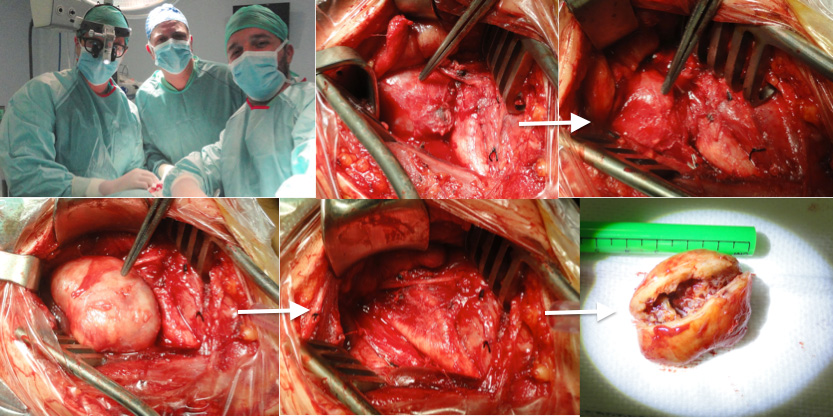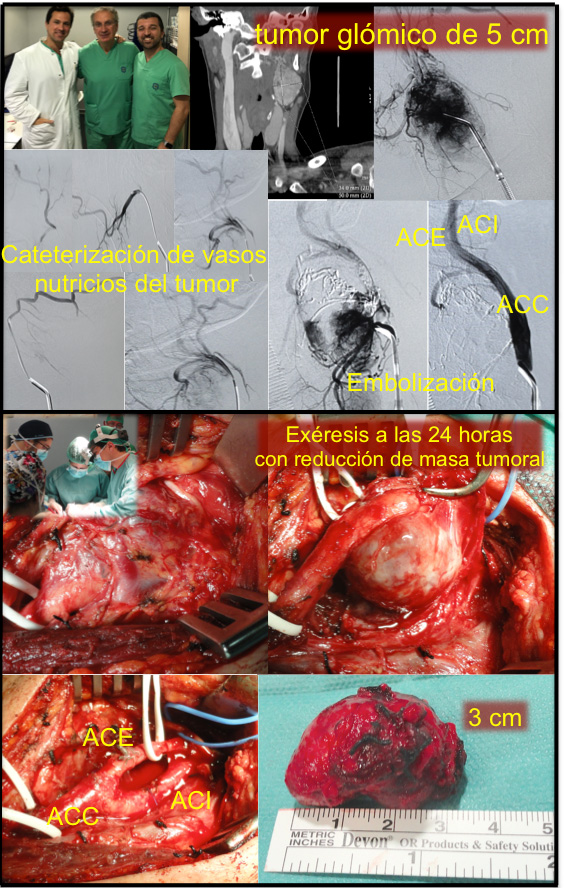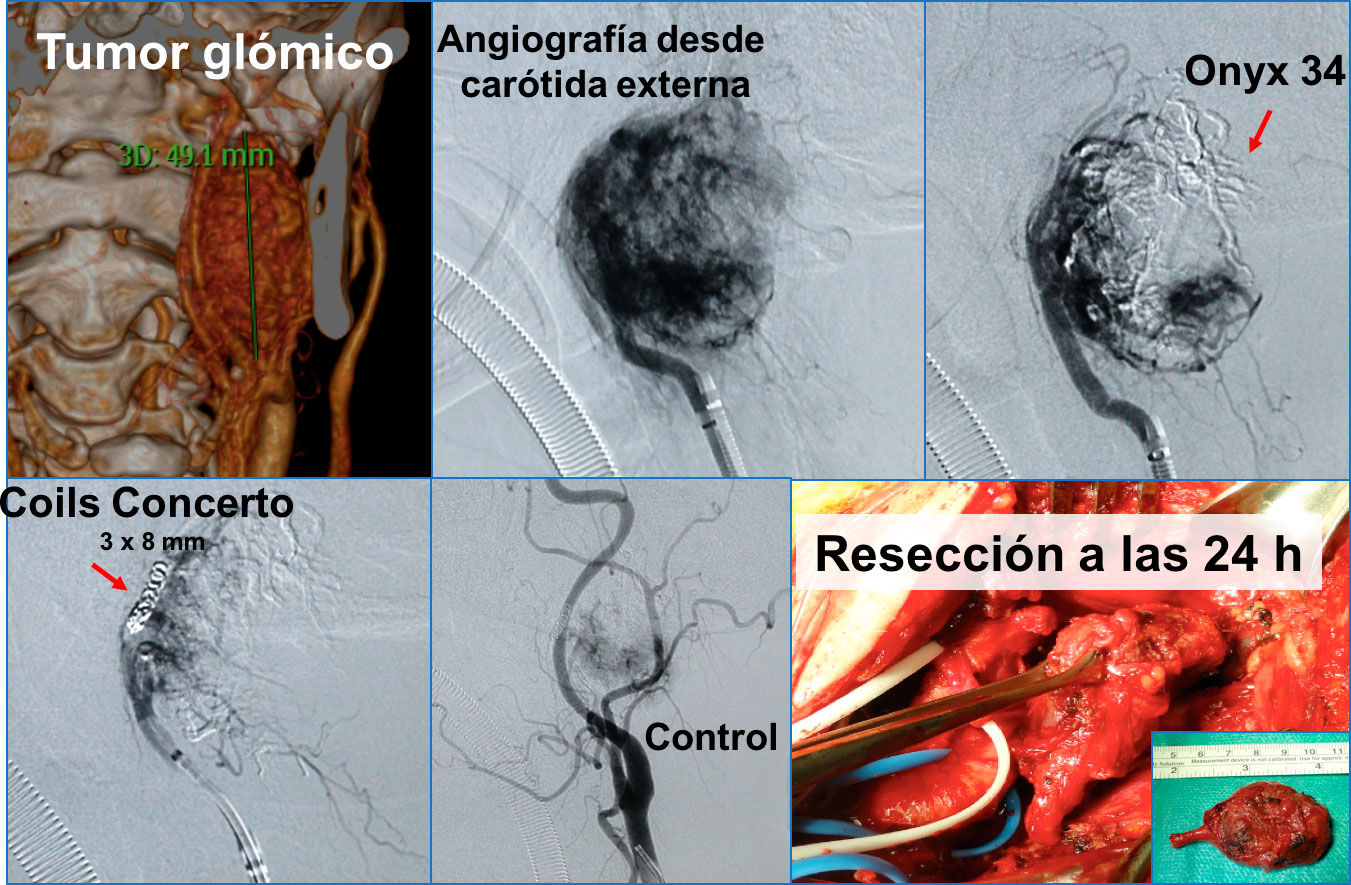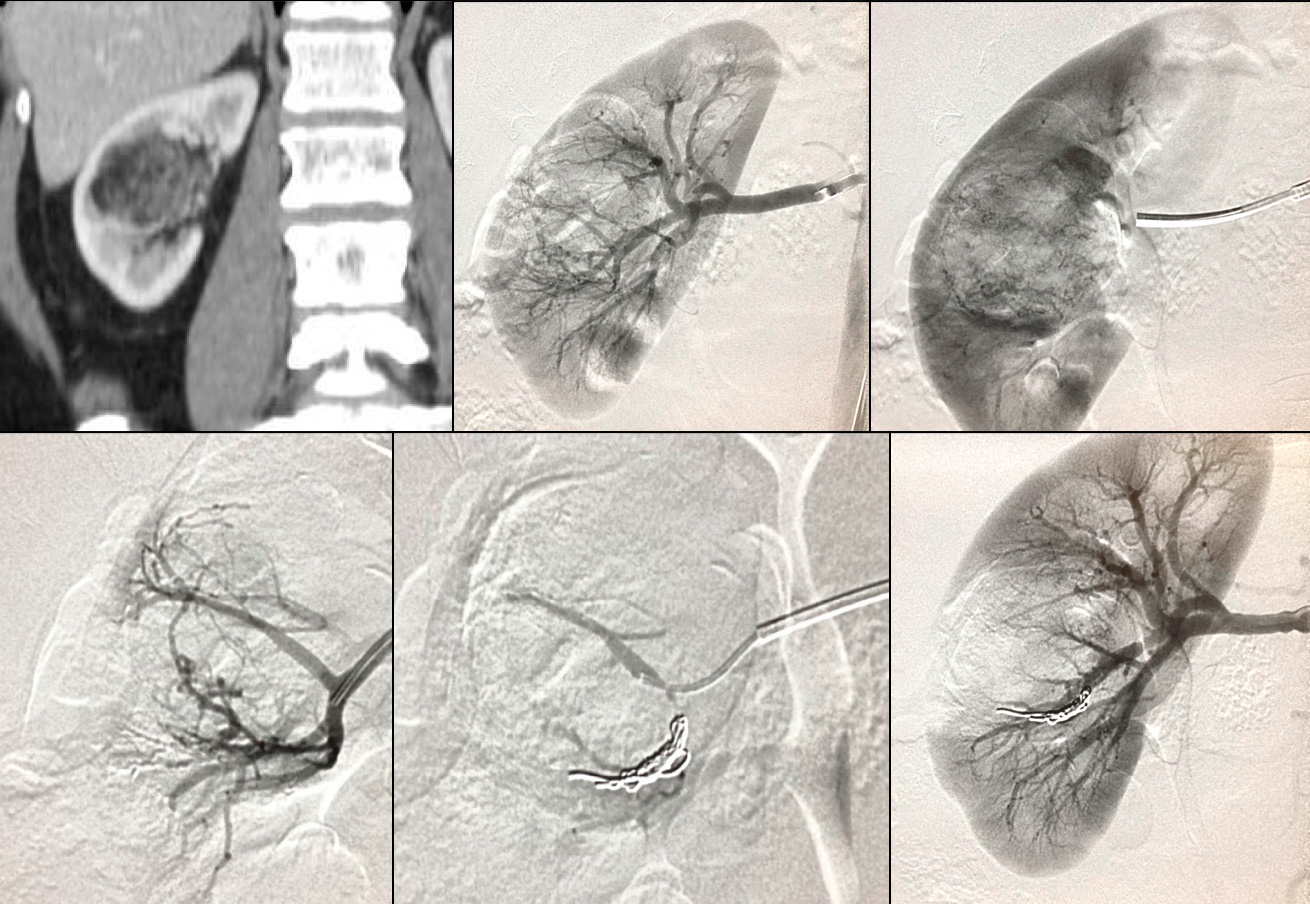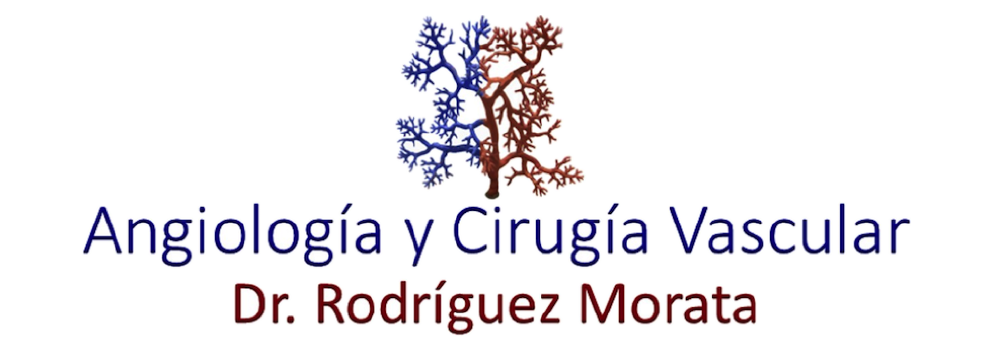This website uses cookies so that we can provide you with the best user experience possible. Cookie information is stored in your browser and performs functions such as recognising you when you return to our website and helping our team to understand which sections of the website you find most interesting and useful.
PARAGANGLIOMAS AND VASCULAR TUMOURS
Tumours and Vascular Compressions
Glomus Tumour, carotid Glomus (PARAGANGLIOMAS)
Vagus N. Paraganglioma
Renal Angiomyolipoma Embolisation
DESCRIPTION
What are Vascular Tumours?
Just as any cell in the body, the wall cells of the blood vessels can transform themselves tumourally, resulting in benign or malignant neoplasias (tumours). Fortunately, the vast majority of vascular tumours are of benign nature, but this does not mean that its progressive growth is not able to cause very severe problems –even fatal- due to the compression of organs, vessels and nearby structures.
There are vascular tumours originated from lymphatic vessels (lymphangiomas, lymphangiosarcomas) or from arterial or venous blood vessels (haemangiomas, haemangiosarcomas, leiomyomas, leiomyosarcomas, etc.).
What is a Paraganglioma?
Paragangliomas are a type of tumours that we, Angiology and Vascular Surgery specialists treat. These tumours arise from paraganglia cells, which are complex clusters of cells, of neuroendocrine function and which generally settle over the wall of the common carotid artery near its bifurcation. These tumours, as well known as glomus tumours, may result likewise from the vagus, spinal nerves or from the wall of the jugular vein itself.
Overall, they are extremely vascularised tumours and to achieve surgical tumour resection without profuse haemorrhage it is necessary to decrease blood supply of the tumour itself before its surgical intervention. This is called tumour embolisation, and we, the Angiology and Vascular Surgery specialists, perform it 24 to 48 hours before definitive surgery. In this supraselective embolisation we generally use coils to block small vessels and embolising liquids as well such as Onyx, to obstruct its main centre and therefore, besides minimising haemorrhage, the tumour mass is decreased in a very significant way.

